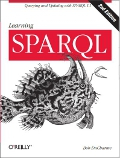
For too long I've postponed the migration of my blog to something more phone-friendly. I accumulated many notes about doing this, and I also wanted to move more of my online life from the snee.com domain to bobdc.com. When someone recently asked me about changing the stylesheet (I have dug and dug in the aforementioned notes but can't remember who and will add their name here if I ever find it) I thought I'd take a deep breath and follow through with this. This is the last new blog entry you'll see on the snee.com domain; you'll also find it at bobdc.com/blog along with converted versions of all my other blog entries since I started on snee.com/bobdc.blog in 2005. I will continue my blog on bobdc.com/blog after this entry.
The conversion of the old entries was most of the work, but with some Perl and XSLT and pandoc and spit and duct tape I got the legacy content into pretty good shape for the new platform.
Of course, the platform choice was a geeky thing to agonize over. I finally went with Hugo, a Go-based static site generator. (I never had to learn the Go programming language, but it looks cool enough.)
It's a bit scary to think of the high percentage of the world's blog entries that are created by data entry into web forms that then use a bunch of PHP to manage that content's storage in relational databases. Having spent much of my career helping people store non-tabular content in standards-based non-tabular storage tools, I definitely wanted to get away from using PHP and relational database managers for narrative content, so I researched various static site generators before settling on Hugo.
Simple web sites like my learningsparql.com and datascienceglossary.org sites are just plain static sites: HTML files that I edit as necessary. A static site generator lets you store content separate from the styling and then generates HTML for your site based on the combination. If you want to change your website's layout or styling, you edit the CSS or whatever and then regenerate the HTML. (The version of MovableType that I used on snee.com actually did static site generation, but all the styling was managed with a mess of old PHP. I haven't upgraded it in ten years because the last time I did it broke so much.) A selling point of Hugo is that it does this very quickly--or, to use the now-clichéd phrase that they prefer, "blazingly fast".
I knew about Jekyll and Sphinx from work because both are used for geomesa.org. After researching alternatives I decided that I liked the available Hugo themes the most. The Hugo documentation isn't very good, but the people on the discussion forum are very helpful, sometimes answering within minutes. If there is any interest I may write a blog entry about the important Hugo techniques I had to track down to customize my blog because they were not written up in an easily findable place.
You store your Hugo content separately from the styling using Hugo's own variation of markdown. As a longstanding XML guy ever since it was a four-letter word, I have ranted about what's wrong with markdown--or, as I should say, "the markdowns"-- but it works for what I want to do in my blog and you can embed just about any sensible HTML you want in places where markdown falls short. I would have preferred a static site generator where the content I wrote for each new blog entry conformed to some simple XHTML profile but I just couldn't find anything with good themes and the right level of automation.
In the lower-right of my snee.com blog you'll see four variations on Atom and RSS feeds. More than one Atom or RSS feed seems to be difficult in Hugo, so my new blog's Atom feed has summaries and links to the original postings and the new blog's RSS feed has the full entries. I will be setting the snee.com ones to redirect to the bobdc.com ones shortly, but you can just subscribe to the new ones now if you like.
So, I apologize for the lack of phone-friendliness of my blog for the last few years and hope you enjoy the new more responsive version of my blog.

